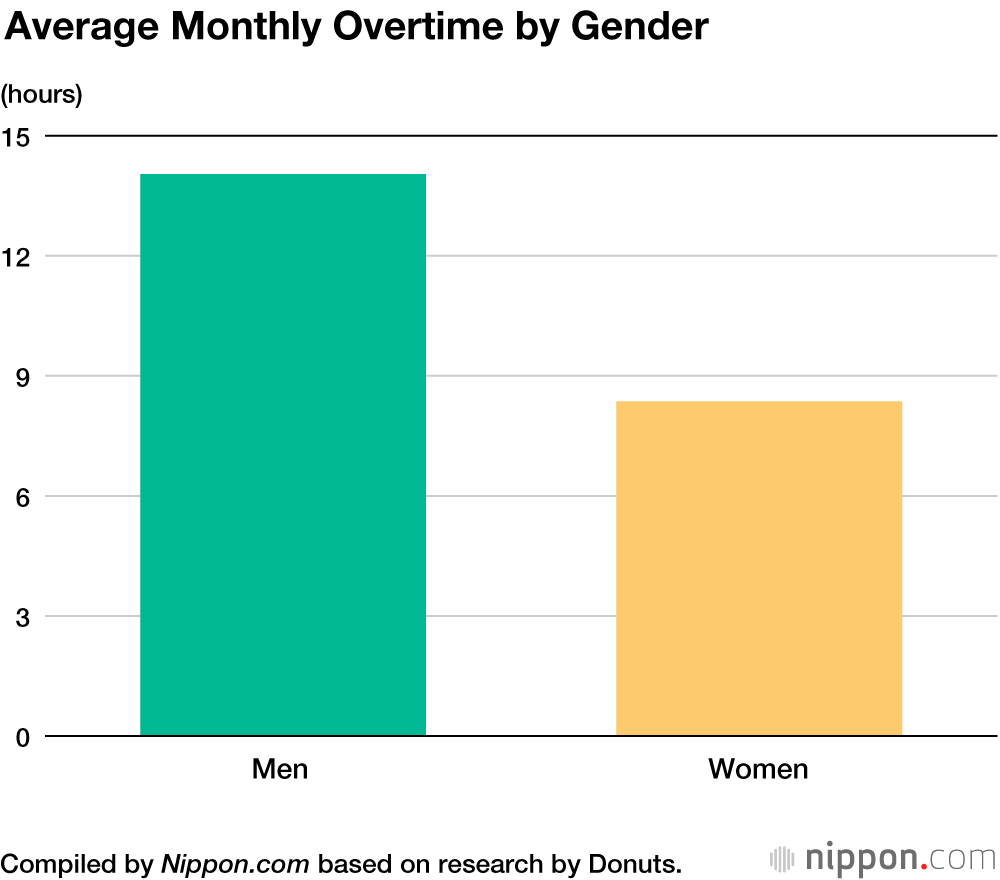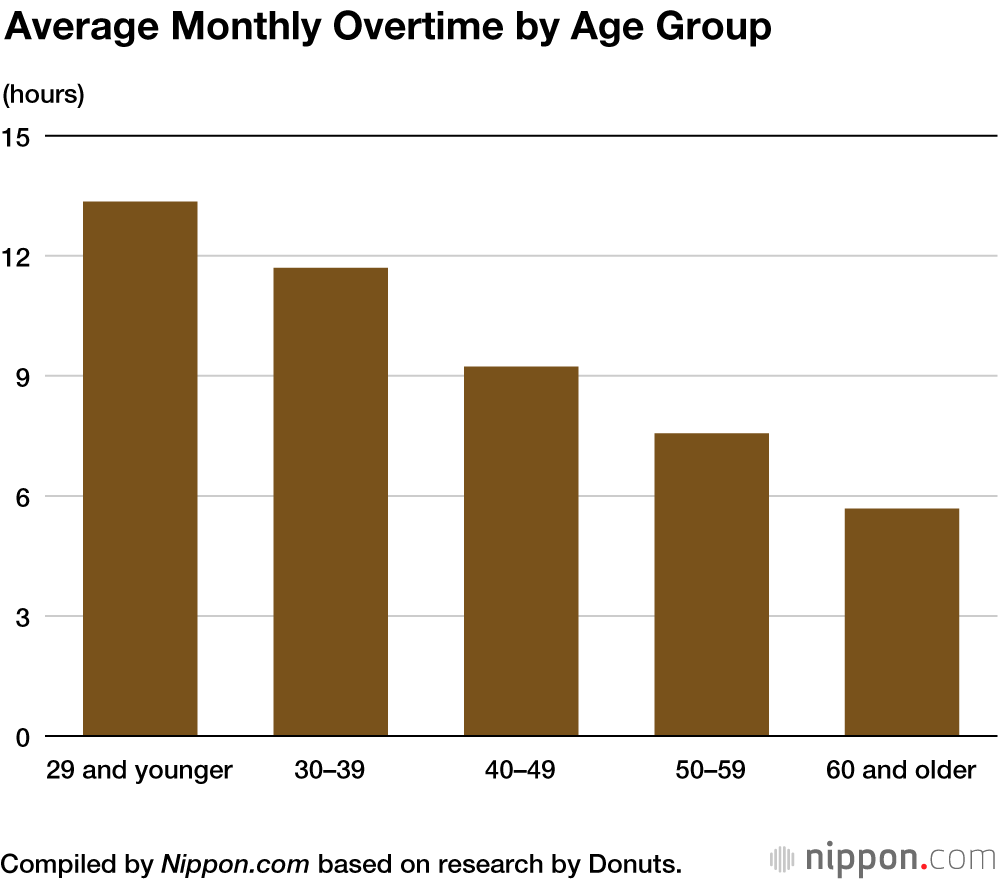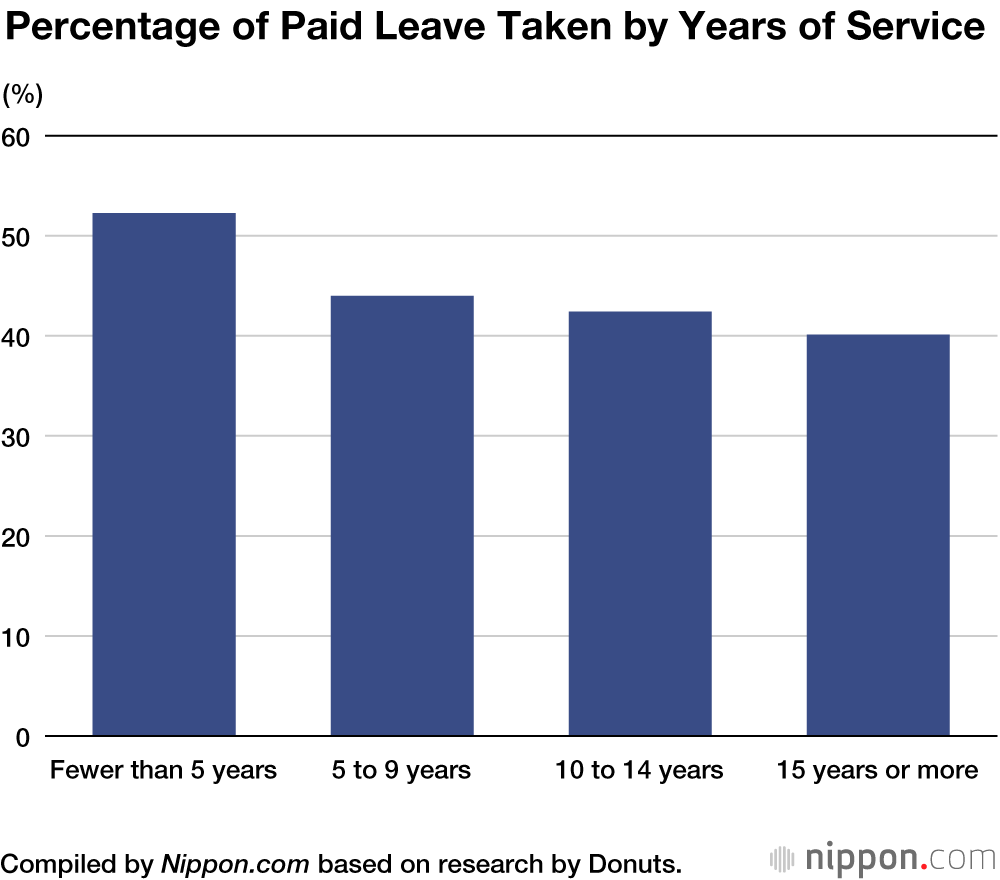
Study Finds Japanese Men Do 1.6 Times as Much Overtime as Women
Society- English
- 日本語
- 简体字
- 繁體字
- Français
- Español
- العربية
- Русский
A recent Japanese report found that men do an average of 14.04 hours overtime each month, or more than 1.6 times as much as the average of 8.36 hours among women. Tokyo firm Donuts analyzed results for 2,263 employees from 133 companies using its attendance and task management systems in 2018.
Younger Employees Put in More Overtime
Older employees worked less overtime on average. Those in their twenties or younger worked the most overtime on average, at 13.35 hours per month, followed by 11.70 hours for those in their thirties, 9.23 hours for forty-somethings, 7.56 hours for fifty-somethings, and 5.68 hours for those over 60. There was no great difference, however, in overtime worked in relation to the number of years employed at a given company.
Newer Employees Take More Paid Leave
On average, employees took around 50.2% of their annual paid leave, with little difference in the respective average among men and women. Employees in their thirties took the highest percentage of paid leave on average, at 51.96%, while those in their fifties took the least, at 46.09%. A significant difference was found among employees depending on how many years they had worked for a company. While employees who had worked for five or fewer years at a company took an average of 52.25%, those who had been with a firm for 15 years or more took just 40.11%.
The 50.2% average for paid leave taken according to the report is around the same level as the average based on government data. As such, Donuts comments in its report that the government’s goal of raising the percentage to 70% by 2020 is far from being a reality and that the appropriate use of paid holidays by employees is necessary for achieving work-life balance.
(Translated from Japanese. Banner photo © Silver Bullet/Pixta.)


